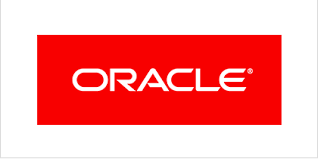甲骨文公司 (ORCL.US) 2026财年第一季度业绩电话会
文章语言:
简
繁
EN
Share
Minutes
原文
会议摘要
Oracle reported robust revenue growth driven by significant cloud contracts, increased RPO, and expanded AI capabilities. Key highlights include a 67% rise in cloud infrastructure revenue, a 30% increase in cloud RPO to $465 billion, and the introduction of 'Butterfly,' a private Oracle Cloud version. The company is poised to maintain market share and drive growth with its comprehensive AI and cloud offerings, expecting fiscal year 2026 CapEx to reach $35 billion.
会议速览
The Oracle Corporation's first quarter earnings conference highlighted financial details and forward-looking statements, cautioning against risks affecting future results. The call featured a discussion on GAAP to non-GAAP reconciliations, recent customer acquisitions, and an emphasis on potential factors influencing projections. Participants were reminded of the risks and uncertainties surrounding forward-looking statements, with an invitation for questions following the prepared remarks.
Oracle experiences significant growth in cloud revenue and RPO, with expectations for Oracle Cloud Infrastructure to expand substantially over the next four years, driven by AI workloads and multi-cloud strategies.
Oracle forecasts robust revenue and non-GAAP earnings growth, leveraging AI to lead in training and inferencing. By building efficient GPU-centric data centers and integrating AI with enterprise data, Oracle aims to revolutionize industries, offering secure, private data-driven AI solutions.
The dialogue highlights Oracle's leadership in AI training, emphasizing the significant demand for inference capacity. It discusses the integration of public and private data for enhanced reasoning, showcasing Oracle's innovative database changes to support vectorized data for large language models. The conversation also touches on the growing need for AI-driven insights in business operations, underscoring Oracle's comprehensive approach to AI solutions.
Oracle emphasizes its secure, reliable database and comprehensive cloud offerings as a unique value proposition for AI-driven data management. The company highlights its ability to provide a full Oracle Cloud experience on-premises at a significantly lower cost than competitors, catering to enterprises seeking private, secure, and feature-rich cloud environments without the need for hardware ownership.
The company leverages advanced AI to create application generators, enhancing efficiency and innovation in software development. By integrating AI agents and workflow, they produce superior applications without separate charges, aiming to boost sales and streamline the creation process.
A speaker highlights Oracle's dual role as an infrastructure and application company, leveraging AI to generate applications more efficiently than manual methods. This strategy, involving continuous improvement through AI-generated applications, positions Oracle uniquely in the evolving tech landscape, offering significant advantages over competitors lacking similar technological prowess.
Emphasizes the advantage of selling integrated suites over discrete applications, highlighting the capability to solve larger problems in the medical sector, streamlining customer consumption by eliminating the need for multi-vendor system integration.
Oracle highlights its unique position in leveraging AI for customer data analysis, offering immediate insights for sales and engineering teams, and claims no known competitors in this advanced AI application space.
Oracle emphasizes an asset-light strategy for its cloud infrastructure, focusing on specialized equipment that accelerates workloads and reduces costs. By deploying equipment only when needed, Oracle ensures immediate revenue generation post-deployment. The company projects a $35 billion CapEx for the fiscal year, with potential increases indicating successful capacity expansion. Oracle's approach includes rapid customer acceptance, advantageous financing terms, and a consumer network that benefits from large-scale purchasing, ensuring financial efficiency and profitability.
The dialogue explores Oracle's approach to maintaining a competitive edge in the AI training sector by leveraging fast data movement and GPU supercluster performance advantages, ensuring profitability even if training demand slows.
The Oracle AI database is set to open up the enterprise inferencing market by securely integrating AI models with private enterprise data, overcoming previous barriers of data privacy and accessibility. This innovation, combined with Oracle's strategic partnerships and bundled AI solutions, is expected to drive significant demand and facilitate the migration of enterprise databases to the cloud, positioning Oracle for substantial AI revenue growth.
The call wraps up, informing participants that a telephonic replay will be accessible on the Investor Relations website. Appreciation is expressed for attendees, and the line is closed with a final thank you.
要点回答
Q:What are the expected revenue growth rates in constant currency and U.S. dollars for the upcoming quarter?
A:The total revenue is expected to grow from 12% to 14% in constant currency and from 14% to 16% in U.S. dollars. Non-GAAP revenue is expected to grow between 8% to 10% and between 1.58 to 1.62 in constant currency.
Q:How is AI transforming Oracle and the computer industry?
A:AI is fundamentally transforming Oracle and the rest of the computer industry. Some world-class AI companies have chosen Oracle to build large-scale GPU-centric data centers for training AI models due to Oracle's efficiency and cost-effectiveness in data center construction.
Q:What are the potential uses of AI inferencing across various sectors?
A:AI inferencing will be used to run robotic factories, cars, greenhouses, perform biomolecular simulations for drug design, aid in diagnosis and laboratory results, automate financial markets, legal processes, sales processes, and create AI agents to automate sales and marketing processes.
Q:How is Oracle positioned in the AI inferencing market?
A:Oracle is aggressively pursuing both the AI training and inferencing markets and is well positioned to be a winner in the inferencing market because it is the world's largest custodian of high-value private enterprise data.
Q:What advantages does the new AI database provide to customers?
A:The new AI database allows customers to vectorize all their data, making it understandable to AI models, and easily connect databases to the world's most extensive AI models available in the Oracle Cloud. This enables customers to ask complex questions using their private enterprise and publicly available data, while keeping their data secure.
Q:How does the large language model enhance the utility of enterprise data with publicly available data?
A:The large language model can apply advanced reasoning to a combination of a company's private enterprise data and publicly available data to answer important questions without compromising the safety and security of the private data, thus providing well-reasoned answers with the latest and best information.
Q:How do the latest tariffs and steel prices affect a company's quarterly results and ability to deliver products?
A:The company needs to change its database fundamentally to answer questions about how external factors like tariffs and steel prices affect quarterly results and product delivery.
Q:What is the unique value proposition for Oracle compared to other companies?
A:Oracle's unique value proposition is its ability to deliver a ChatGPT-like experience on top of data due to having a secure and reliable database linked to all of its Is, which is more comprehensive than that of application companies.
Q:Why is Oracle considered the de facto cloud for many customers?
A:Oracle is considered the de facto cloud for many customers because they offer a choice of using their public cloud or a competitor's public cloud with the Oracle database, and they can meet most customer needs in one way or another.
Q:What is the most advanced application generator that Oracle has developed?
A:Oracle has developed the most advanced application generator, which is an AI that helps in building applications more efficiently. The latest applications are being generated by this AI, giving Oracle a significant advantage over other application companies.
Q:Why does Oracle not charge separately for AI and applications?
A:Oracle does not charge separately for AI and applications because the applications are essentially a bunch of AI agents linked together with workflow. The goal is for customers to purchase the applications, not separately charge for the AI component.
Q:What business strategy has the company adopted and why do they believe it provides a competitive advantage?
A:The company has adopted the strategy of selling suites of applications instead of individual discrete applications. They believe this provides a competitive advantage because they can solve a larger portion of the problem for their customers, making it easier for them to consume all the pieces which are engineered to fit together, thus reducing the need for system integration across multiple vendors.
Q:What are the specific advantages the company claims to have in the application and AI inferencing space?
A:The company claims to have significant advantages in the application space and in AI inferencing. They can provide real-time answers to complex questions using customer data, such as identifying the top salesperson, the number one prospect in a territory, the recommended products to sell, and top references to persuade customers to use their product. They also have the capability to analyze Oracle Financials to identify features where users make the most errors and to make those features easier to use.
Q:Can you describe the financial implications of the company's infrastructure build-out strategy?
A:The company's infrastructure build-out strategy is characterized as asset-light, which means they focus on owning and engineering equipment optimized for the Oracle Cloud, rather than owning the building itself. This allows them to generate revenue quickly once the equipment is accepted by the customer, resulting in a faster return on investment. For the fiscal year, the company expects CapEx to be about $35 billion and aims to put the equipment in place and start generating revenue immediately. This strategy gives the company a good line of sight for their CapEx needs and the potential to scale quickly with increased capacity.
Q:What are the competitive advantages the company has in the AI training business?
A:The company's competitive advantages in the AI training business stem from their networking capabilities which allow data to be moved very quickly, potentially providing performance advantages in their GPU superclusters. If they can offer services that are twice as fast at half the cost, they are able to differentiate themselves in the market and maintain a strong position, especially as customers are often price-sensitive and value high performance.
Q:How soon after the introduction of the Oracle AI database do you expect enterprise customers to adopt the technology for their data?
A:Enterprise customers are expected to adopt the technology for their data immediately after the introduction of the Oracle AI database, thanks to the latest inference reasoning models and enhanced security features provided by Oracle.
Q:What challenges have previously hindered the adoption of AI by enterprises, and how does the Oracle AI database overcome them?
A:Previously, enterprises were hesitant to adopt AI due to a lack of understanding of how to implement it securely and the inability to share sensitive data with external entities like OpenAI. The Oracle AI database overcomes these challenges by ensuring data privacy while making it available for inference by AI models.
Q:What unique capabilities does the Oracle AI database offer compared to other AI models?
A:The Oracle AI database offers unique capabilities by vectoring with all the data in the database, providing elaborate security models, and bundling it with all of the AI models, making it easy for customers to use a combination of large language models on A with their enterprise data.
Q:How is the demand for the Oracle AI database and its features expected to be?
A:The demand for the Oracle AI database and its features is anticipated to be insatiable, as it fulfills a high need for accessing and understanding vast amounts of data with AI models.
Q:What is the strategy for integrating Oracle databases with cloud services?
A:Oracle plans to integrate its databases with cloud services, with many moving into the public cloud using the Oracle AI database and others opting for a Dedicated Region Oracle Cloud customer setup to use AI for their own data.
Q:How is the new offering expected to impact revenue for Oracle?
A:The new AI revenue offering is expected to be very high margin, contributing significantly to Oracle's revenue, with the potential to drive growth in the enterprise market.

Oracle Corp.
Follow





